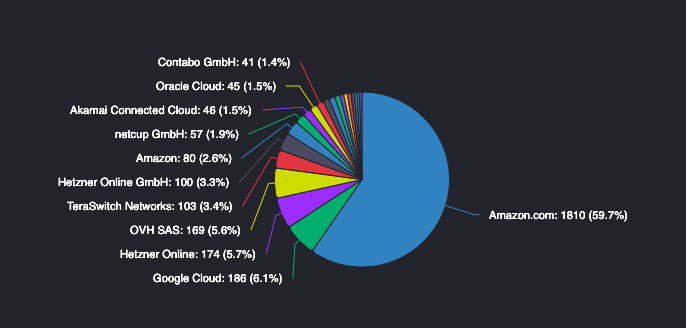According to Vitalik Buterin, co-founder of the largest altcoin project Ethereum, the centralization of nodes is one of the biggest issues the Ethereum network faces. Buterin argues that the operation of nodes should be made cheaper and easier to address this problem.
Ethereum Puts an End to Centralization Debates
Speaking at the South Korea Blockchain Week, Vitalik Buterin summarized the six fundamental problems that need to be addressed to solve centralization on the Ethereum network. However, he emphasized that the node problem is a significant piece of the puzzle that needs to be solved to prevent long-term centralization of the Ethereum network. During his speech, Buterin stated, “One of these six things is technically making it easier for people to run nodes, and statelessness is one of the really important technologies to get this right. Today, running a node requires hundreds of gigabytes of data. With stateless clients, you can run a node with essentially zero data.”
The concept of statelessness mentioned by Ethereum’s co-founder refers to eliminating the dependency on centralized service providers to verify transactions on the network. According to the Ethereum Foundation, true decentralization is not possible until node operators can run Ethereum on modest and inexpensive hardware.

Currently, the majority of the 5,901 active Ethereum nodes are running through centralized web providers like Amazon Web Services (AWS), which many experts claim have centralized the Ethereum Blockchain. As mentioned by Buterin, statelessness constitutes an important component of the Ethereum roadmap, and significant steps towards statelessness will be taken in the “The Verge” and “The Purge” stages. Despite being a fundamental part of Ethereum’s roadmap, Buterin admits that these highly technical concerns are unlikely to be addressed anytime soon, saying, “These technical issues will eventually have to be addressed. Maybe in a timeframe of 10 years, maybe 20 years.”
Buterin also stated that apart from statelessness, the next most important moves to reduce centralization on the Ethereum network are making documentation easier, reducing barriers to distributed staking, making staking more secure, and overall making ETH staking easier.
Ethereum’s Scalability Issue
Ethereum’s co-founder also pointed out scalability as one of the most urgent problems to be solved for the largest altcoin. Currently, Ethereum scalability protocols are dominated by the use of zero-knowledge (ZK) rollups.
ZK-rollups are seen as a significant threshold in achieving full scalability by many within the Ethereum community as they attempt to increase efficiency on the main Ethereum Blockchain by moving computation and state storage off-chain.
